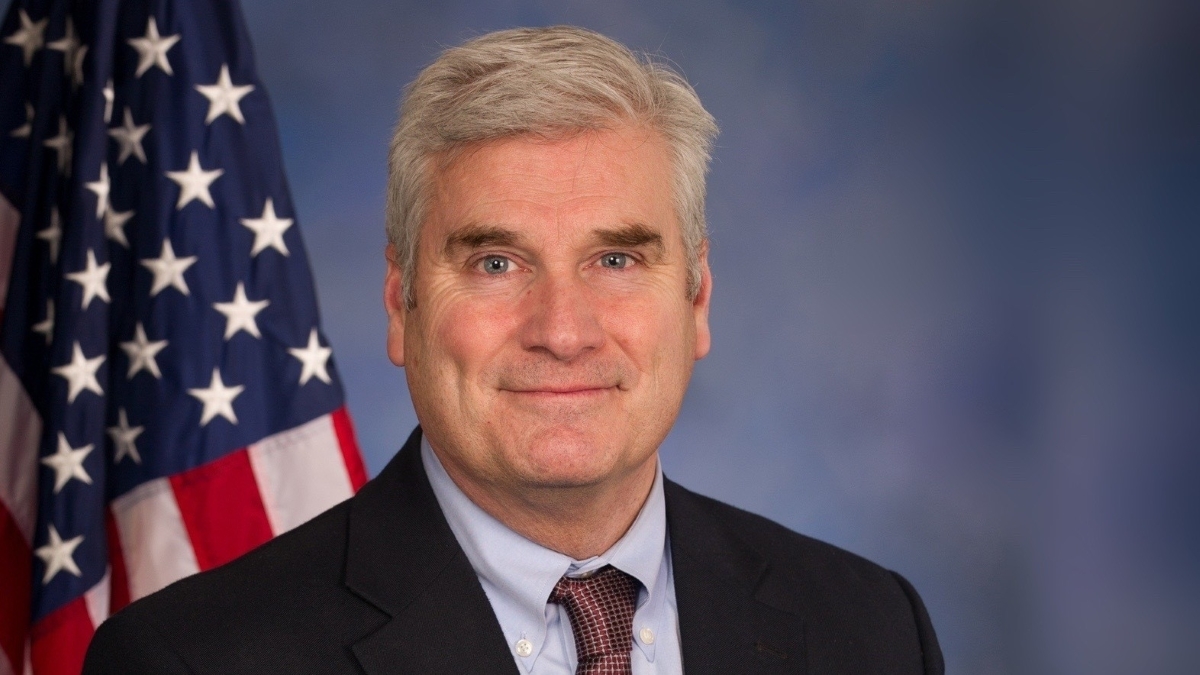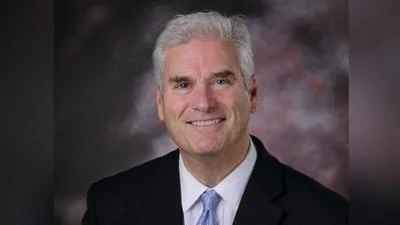Tom Emmer | Official U.S. House headshot
Tom Emmer | Official U.S. House headshot
WASHINGTON, D.C. – House Majority Whip Tom Emmer (MN-06) provided remarks at Tuesday’s House Financial Services Committee hearing entitled The Future of Digital Assets: Providing Clarity for the Digital Asset Ecosystem.
During the hearing, Emmer spoke on the draft legislation surrounding digital asset market structure and gave his thoughts as to how he felt the bill could be improved.
A transcript of Emmer’s remarks can be found below:
Thank you, Mr. Chairman. I want to thank Chairman McHenry, for holding this important hearing today. And thank all the witnesses for your testimony.
We are convening to discuss a remarkable piece of draft legislation on digital asset market structure. It’s a product of joint committee collaboration, which, here in Congress, doesn’t happen often, and it’s drafted thoughtfully and intelligently. I want to commend Chairman McHenry, Chairman Thompson of the Agriculture Committee, and both of their teams for all their hard work.
Crypto will thrive with or without the United States. What we seek to do today in discussing this draft is establish if the next iteration of the internet is going to be designed by Americans and for Americans, or if it’s going to emulate the values of some other country. It must be the former, not the latter.
American digital asset innovators and entrepreneurs desperately need regulatory clarity, regulatory certainty, regulatory confidence, and regulatory competitiveness. The Four C’s. Instead, as a product of Congress ceding its power to the Administrative State since the mid ‘90s, this Administration has been able to abuse its regulatory power toward the digital asset ecosystem to the detriment of the American people.
- We have an SEC Chair who flip flops before Congress telling us last year that he needs legislation to regulate the digital asset industry and telling us this year that he changed his mind, he actually does have the authority, in his own mind, the statutory authority to regulate this space. I would disagree. But, obviously this sends mixed signals.
- The SEC and the CFTC, the two potential primary regulators, are constantly at odds on what digital assets are commodities or securities. This sends mixed signals to stakeholders.
- This Administration weaponized the recent bank crisis to de-bank the digital asset community, deploying an Operation Chokepoint style assault on this legal industry.
- We have enforcement actions almost every week alleging different tokens are securities or different actions fall under SEC jurisdiction.
- Yet, the SEC has failed to produce a single rule or regulation to help the unique digital asset industry come into compliance. A failure of the Administrative State.
Fundamentally, I don’t believe digital assets themselves are ever securities. Instead, I believe digital assets can be obtained through a securities contract. The distinction between the “investment contract” and the “asset” of the investment contract underpins my eight years of legislative work in this space and it’s the basis of my bill, the Securities Clarity Act, which I was fortunate to have Mr. Thompson on as a cosponsor last Congress.
Primarily, while I know this is not the author’s intention, my concern is that the McHenry/Thompson bill, as drafted, currently sets up a framework where one fungible digital asset can be both a security and a commodity... at the same time. On its face, that's not possible - for one thing to have two distinct classifications, that’s not possible. That’s because the SEC does not clearly distinguish the asset from the investment contract.
In current law, securities inherently include commodities. Let’s go back to Howey: The orange groves themselves were obviously a commodity, but they were obtained through a securities contract. Nonetheless, the SEC considered those orange groves a security, rather than the asset of a security, but it did not consider all other orange groves a security.
The SEC does this today with digital assets, which, if continued, makes it impossible for digital assets to be in compliance with the law and to be used for their utility. Chair Gensler gave a speech just last week discussing his belief that the asset of the investment contract is itself the investment contract, completely bogus. For the text to achieve what the authors want it to achieve, which is to enable a framework in which a project can crowdfund and still create an asset that can be used for its utility, then the text needs to clearly assert concepts established in the Securities Clarity Act – that a token is separate and distinct from an investment contract. This will allow the bill to provide the necessary regulatory clarity, regulatory certainty, regulatory confidence, and regulatory competitiveness to ensure the next iteration of the internet is designed by Americans and for Americans.
Again, thanks our witnesses for being here and thanks Chairman McHenry and Chairman Thompson for your work on this framework.
I yield back.
Original source can be found here.






 Alerts Sign-up
Alerts Sign-up